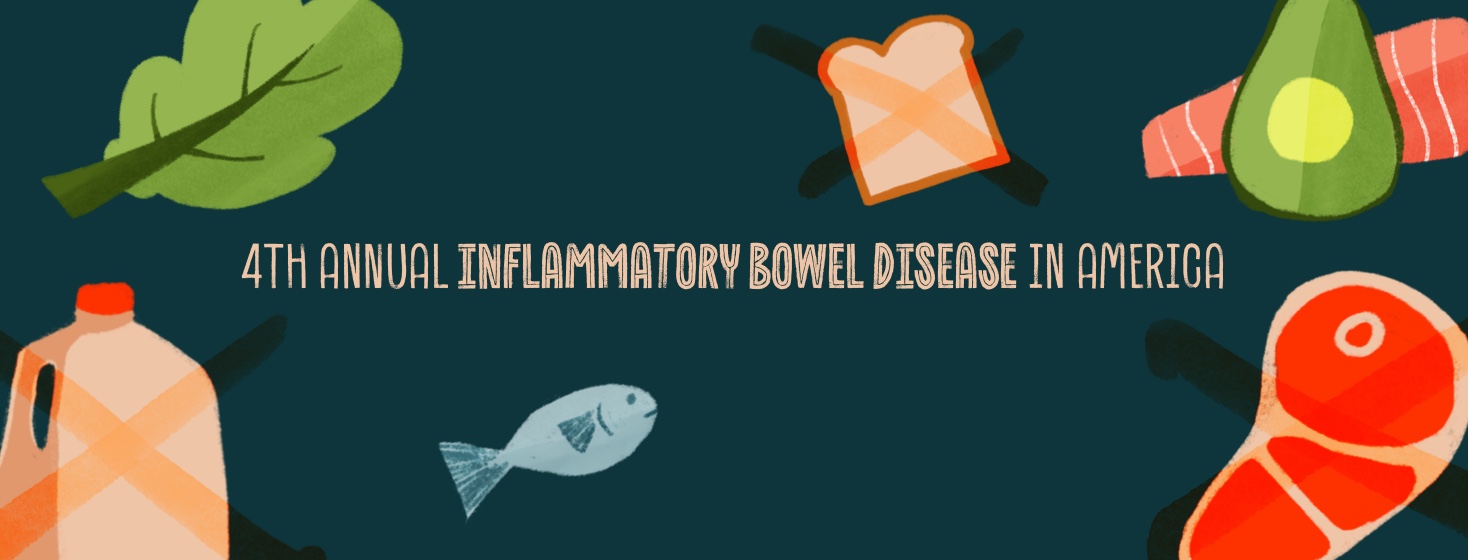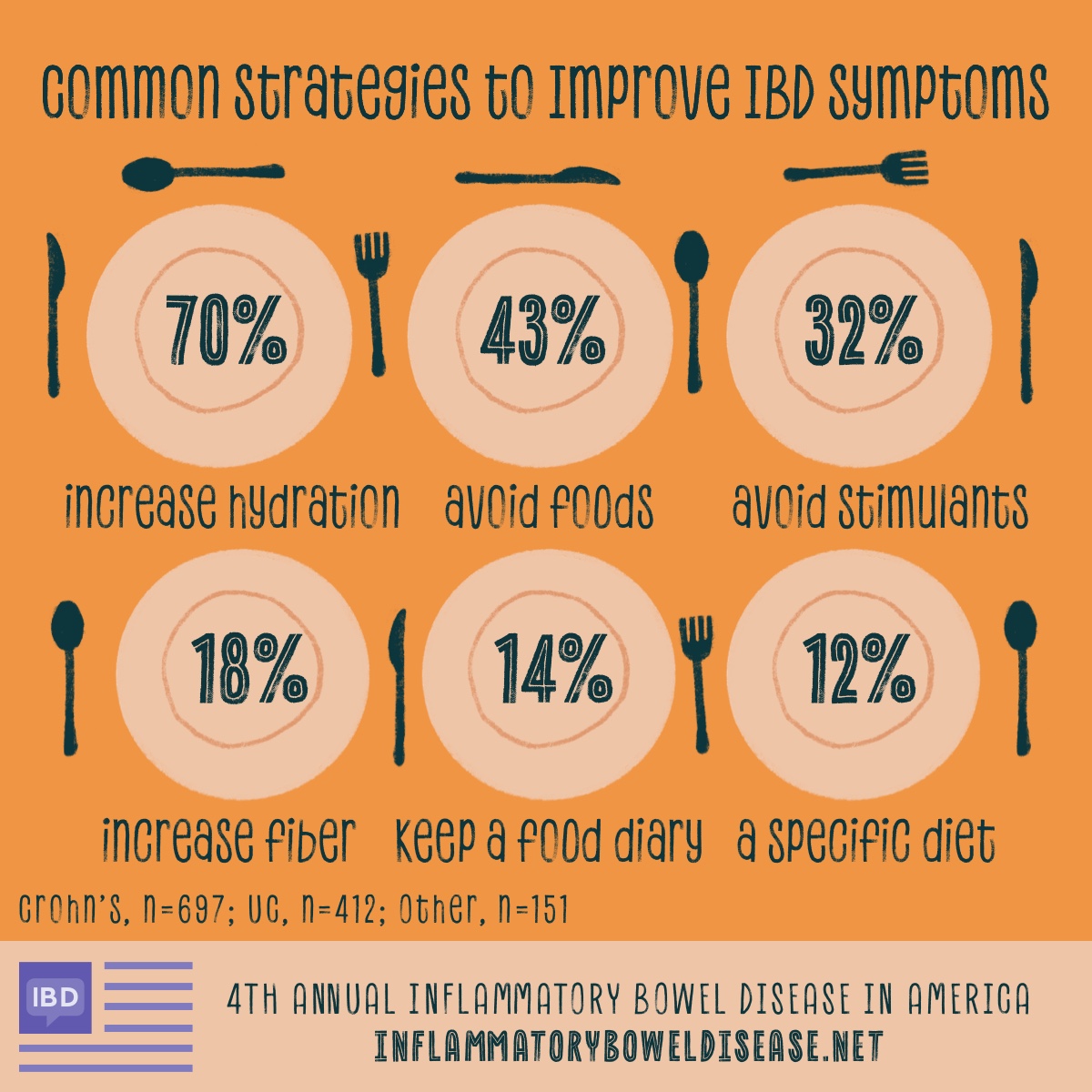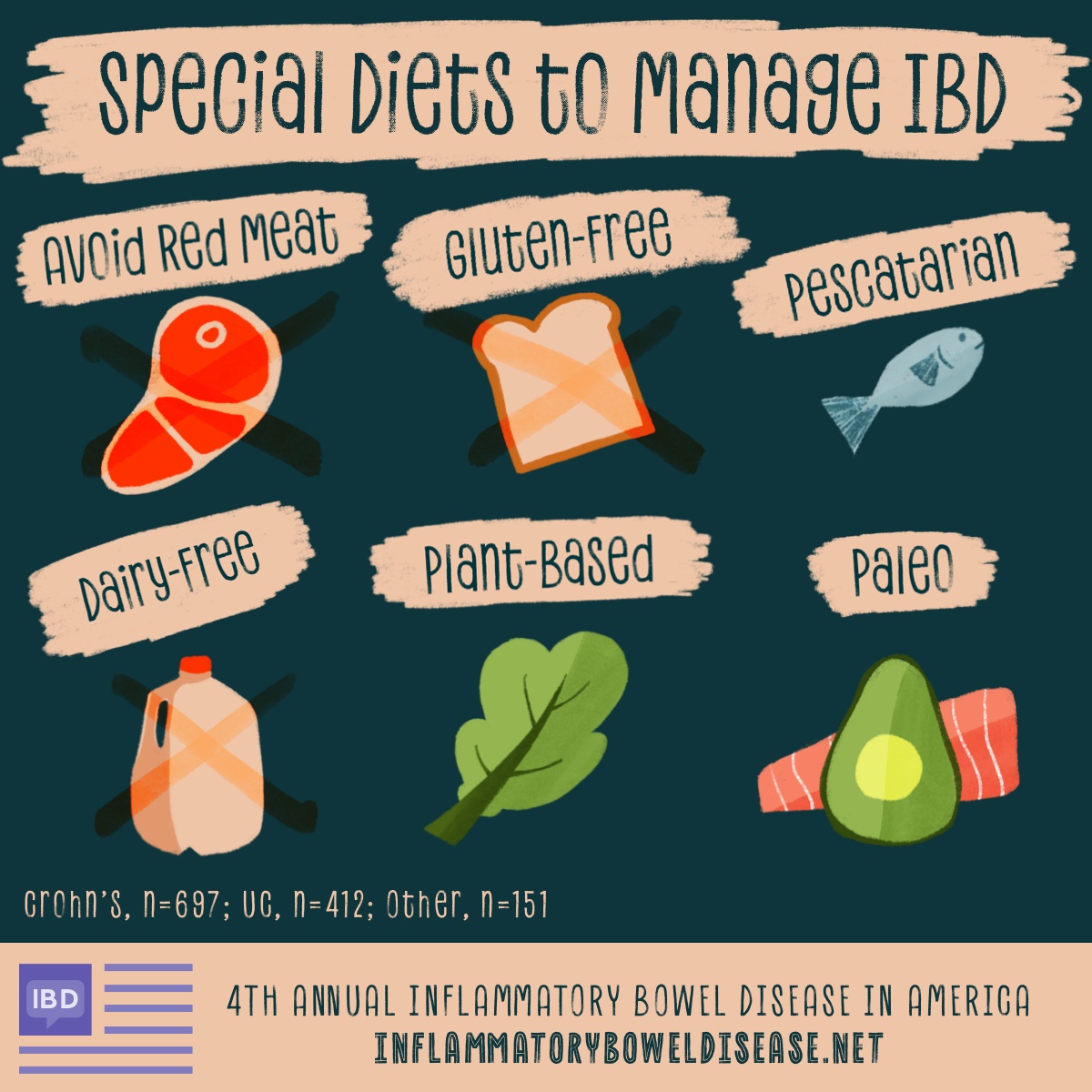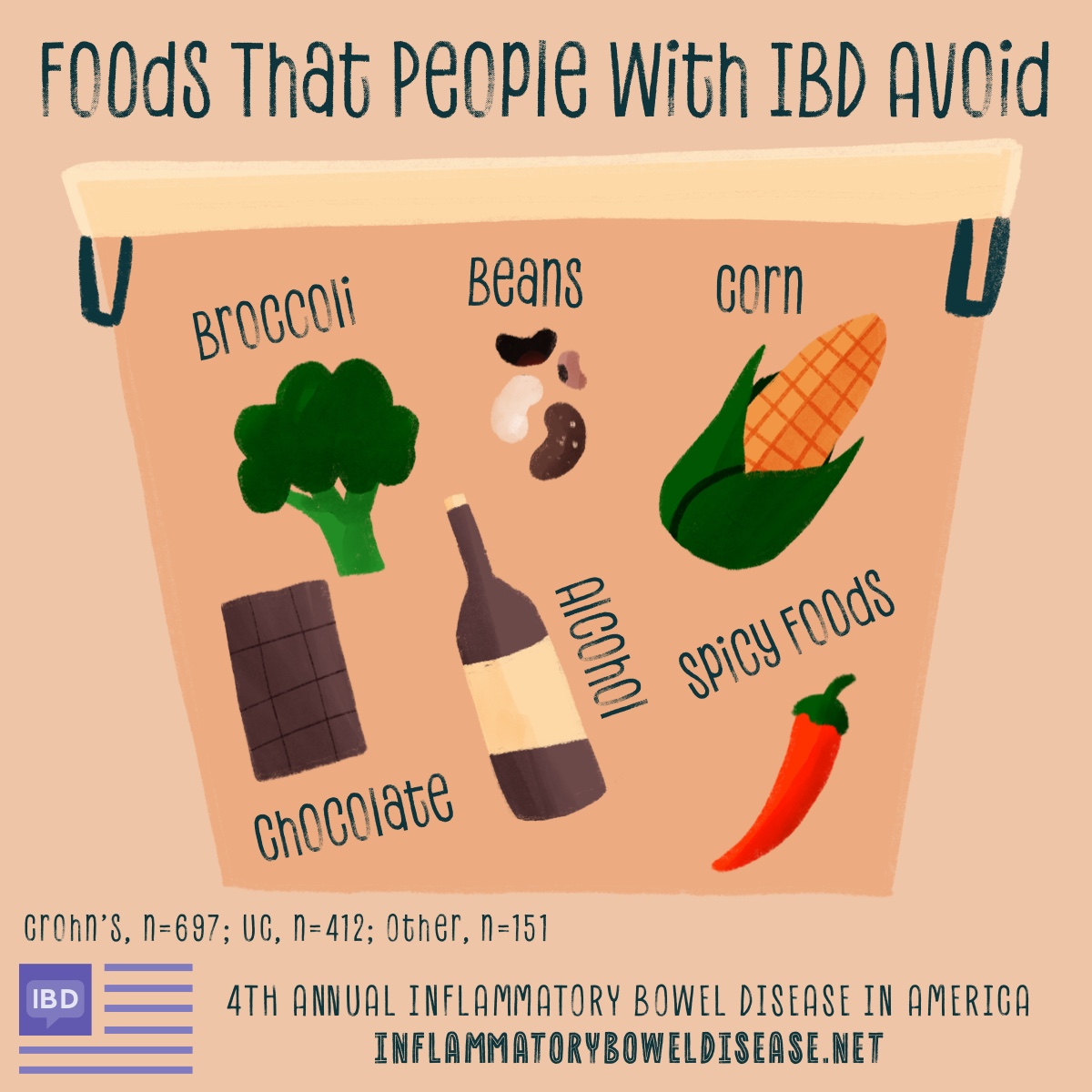How Does Diet Impact Crohn’s Or UC? Results From the 2020 IBD In America Survey
We know that diet and nutrition are different for everyone with inflammatory bowel disease. It is not “one size fits all,” but some people with Crohn’s disease and ulcerative colitis (UC) have found that diet and nutrition changes have helped their symptoms and offered them relief.
Many of our IBD community members have questions about diet and nutrition and are interested in knowing more about what has helped others. To better understand this and much more, we conducted our 4th Annual IBD In America survey. More than 1,200 people shared their experiences.
Strategies to improve Crohn’s and UC symptoms
IBD symptoms can be frustrating – we know that. Many people in the community try a multitude of strategies for symptom relief, in addition to medicine.
In the 4th Annual IBD In America survey, 38 percent* of respondents expressed that they would rather make changes to their lifestyle and/or diet than take a prescription drug. Additionally, 80 percent of respondents said they use complementary or alternative therapies like a special diet, exercise, yoga, rest/sleep, meditation, and more.
What types of special diets are used by people with Crohn’s or UC?
There are an array of diets that people in the IBD community use to manage their symptoms. These diets and foods vary widely from person to person and can change over time. People who took the 4th Annual IBD In America survey shared the diets that they use to manage their symptoms.
What are the most common foods that people with IBD don’t eat?
Many people in the IBD community talk about their triggers and trigger foods. More than 40 percent of the people who completed the survey said they limit or avoid certain foods because of inflammatory bowel diseases like Crohn's disease and ulcerative colitis. It can be difficult to identify trigger foods and trigger foods vary widely from person to person. Some common foods that are avoided are listed below.
Diet and IBD is a difficult subject
We know that diet and nutrition vary widely between people with Crohn’s, ulcerative colitis, and other types of IBD. We also know how frustrating it is to hear others' opinions and unsolicited advice on this topic, especially if they do not live with IBD. Comments such as, “You should try this” or, “This worked for me and will work for you too” are especially aggravating.
We get it. If you have any questions regarding diet and IBD, reach out to the community.
The 4th Annual IBD In America was conducted online from June through September 2020. Of the 1,260 people who completed the survey, 697 have been diagnosed with Crohn’s disease or Crohn’s colitis, 412 have been diagnosed with ulcerative colitis, and 151 have been diagnosed with another type of IBD.




Join the conversation